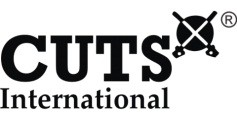World’s struggle with the COVID-19 pandemic continues, particularly in preventing its further spread and ensuring access to affordable medical products, such as diagnostic kits, personal protective equipment (PPEs), ventilators and also upcoming vaccines and medicines, which can prevent and cure the disease. In order to enhance such access to healthcare, ex ante competition policy can be used as a viable tool, in addition to competition law enforcement.
Competition policy, here denotes, pro-competition government policies, including industrial policy. In the context of access to medical products through competition, a pro-competition intellectual property (IP) policy becomes crucial. For instance, domestic IP laws incorporating flexibilities enshrined in the Agreement on Trade Related Aspects of Intellectual Property Rights (TRIPs) of the World Trade Organisation (WTO) is more likely to engender generic competition in pharmaceutical markets. India’s example can be cited here, which, inter alia, deals with the anti-competitive menace of ‘evergreening’ by having a narrow patentability criteria allowed under TRIPs.
The recent Communication (IP/C/W/669) from India and South Africa in the WTO, calling for a temporary waiver from the implementation, application and enforcement of IP standards under the TRIPs Agreement in relation to prevention, containment or treatment of COVID-19, can also be viewed as adhering to a competition policy approach. The idea is that IPRs do not create barriers to timely access to affordable medical products or to scaling up research, development, manufacturing and supply of such products to combat COVID-19. It also flags difficulties that many countries, particularly those with insufficient or no manufacturing capacity, may face due to Article 31bis, which prescribes a cumbersome and lengthy process for the import and export of pharmaceutical products under compulsory license.
Competition agencies of many countries also responded to ensure essential items, including medical products, during this pandemic that broke the existing supply chain. In general, collaborations between firms to ensure essential supplies were permitted, which hitherto could have been booked under respective competition law.
Therefore, a combination of ex ante competition policy tools with ex post competition law enforcement is needed to enhance access to healthcare. This webinar, on the occasion of World Competition Day, discussed the use of these tools. A toolkit on this year’s theme – Competition Policy and Access to Healthcare – prepared by CUTS International and CUTS Institute for Regulation & Competition (CIRC) was also launched.
WELCOME ADDRESS
Pradeep S. Mehta, Secretary General, CUTS International
TOOLKIT LAUNCH
Arvind Mayaram, Chairman, CUTS Institute for Regulation & Competition
PANELISTS
Teresa Moreira, Head, Competition and Consumer Policies Branch, UNCTAD
Hardin Ratshisusu, Deputy Commissioner, South African Competition Commission
Carlos Correa, Executive Director, South Centre
Alexey Ivanov, Director, BRICS Competition Law and Policy Centre, HSE, Moscow
Moderator: Rashid S. Kaukab, Executive Director, CUTS International, Geneva

